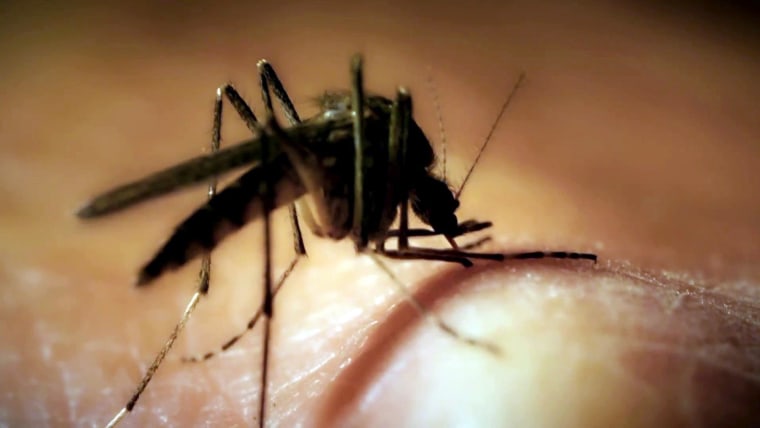
Stationed near the Texas-Mexico border as part of the National Guard, Christopher Shingler first noticed a fever, trouble eating and vomiting in May.
Medics gave the 21-year-old tests for Covid-19, and at a hospital the Brazoria County resident was told he likely had a viral infection.
In early June, after symptoms persisted, tests at a different hospital made it official: Shingler had malaria.
The mosquito-carried disease sickens more than 200 million people annually around the world and kills hundreds of thousands, and Shingler appears to be one of just a handful of people in the U.S. to get the disease without having traveled recently.
“I would wake up really early in the morning and I would start shaking,” Shingler said. A high fever would follow and lead to vomiting.
“It was a lot of just trying my best to make myself eat something, as small as I could, which usually I was unsuccessful, or trying to drink water, which, again, I was unsuccessful,” Shingler said.
Shingler’s out of the hospital now and no longer nauseous. He said he lost around 15 pounds.
He was stationed on the Rio Grande River in Brownsville for most of May, working mostly at night, and said he first felt sick on May 20.
Shingler does not know how he got malaria or from where. He said the Centers for Disease Control and Prevention has been in contact with him as officials try and find the source.
“We were getting torn up by mosquitoes, chiggers, whatever you can think of, you can name,” Shingler said. “We were getting torn up the entire time we were out there, especially that first night.”
But he is not aware of anyone else from his unit who felt sick.
The CDC this week said that there have been five cases of malaria in the U.S. over the last two months that were acquired locally, meaning they weren’t linked to international travel.
The five — four in Florida and one in Texas — are the first locally contracted malaria cases in the U.S. in 20 years. The CDC issued warnings but said the risk throughout the country remains extremely low.
Malaria cases in the U.S. are more commonly found among people who have traveled outside the country.
The disease is most common in the Africa region, according to the World Health Organization. In 2021, there were an estimated 247 million cases worldwide, with around 619,000 deaths.
Malaria is not spread from person to person, like a virus. It is caused by a parasite inside a mosquito, and infections usually occur when people are bitten by female Anopheles mosquitoes, according to the WHO. Five types of Plasmodium parasite can cause it, but two pose the biggest threat to people.
All five patients in the U.S. have gotten treatment and are recovering, according to the CDC.
The health agency urged people to protect themselves against mosquitos with things like long-sleeved clothes and pants and insect repellent. It also says to get rid of standing water where mosquito eggs are laid and take other steps to control the insects.
Shingler said he did not expect to get malaria. He urged people to wear bug spray if they are working where mosquitos are.
“I didn’t fully grasp how impactful this was until I was reading the news and I saw article after article after article saying, ‘Hey, the first ever case of malaria locally in Texas in 20 years,’ he said. “I was like, ‘Wow, that’s actually kind of crazy.'”
“I don’t think anybody even thought that that was a thing that could happen,” he said. “At the end of the day, I think it was just pure coincidence that I happened to get it.”

 Latest Breaking News Online News Portal
Latest Breaking News Online News Portal





